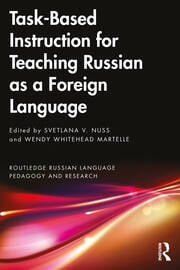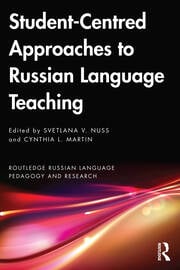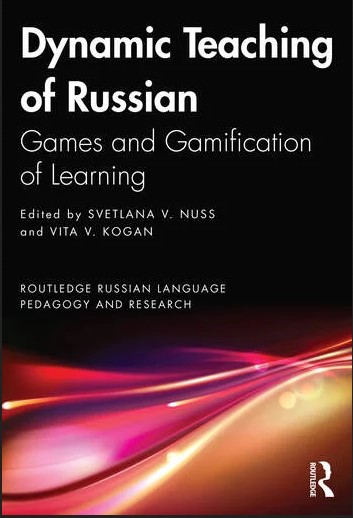
Publications
Russian Language Pedagogy and Research
Russian Language Pedagogy and Research brings together edited volumes on the advances in the research and pedagogy of teaching the Russian language. Written by experts from across the world, the series brings together diverse schools of thought and serves as an inclusive discussion forum showcasing state-of-the-art advances in teaching and researching Russian.
Focused on advances of practice and research scholarship, each volume in the series
- Facilitates international exchange by giving voice to diverse perspectives
- Features chapters with abstracts in both English and Russian
- Provides an extensive and thorough literature review on the topic
Bridging the divide
This series is the first of its kind to bridge distance and cultural divides and promote a high-quality scholarly exchange of professionals. The study of Russian around the world today is often advanced by isolated professionals and enthusiasts – a phenomenon caused by several waves of immigration from Russia – contributing to the emergence of creative and impactful pedagogy and research that are not shared. For the communication opportunities and technological achievements modern society affords, education in the field of teaching Russian is not using them to full potential and needs more collegial collaboration.
Benefiting the diverse and often isolated learners of Russian all around the world, this Series provides an unparalleled opportunity of ongoing focused professional development and exchange to their teachers. This series calls to transform the reputation of Russian as a ‘difficult’ and intimidating language to learn and empowers the field by sharing impactful pedagogy and research. It helps learners to discover the innate beauty of Russian sooner and progress in its acquisition more successfully.
Audience
This series is intended for educators and researchers of Russian both affiliated with school districts or universities and working independently, postgraduate students, and language departments of Russian interested in increasing the impact of their instruction. It is ideal for bi- and multilingual literacy curriculum developers and language professionals returning to academic study and research. The series also meets the needs of professionals working with less commonly taught Slavic and other morphologically rich languages that are in the development stages of creating their pedagogical narrations and research.
Proposals are welcomed and actively solicited by the editor. Please do get in touch if you would like to contribute to the series.
Task-Based Instruction for Teaching Russian as a Foreign Language
Copyright year 2022
Dynamic Teaching of Russian: Games and Gamification of Learning
Copyright year 2024



